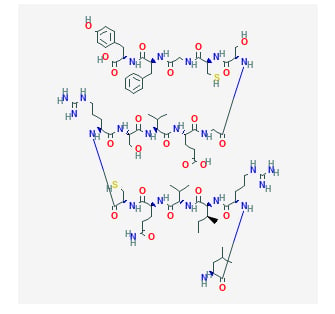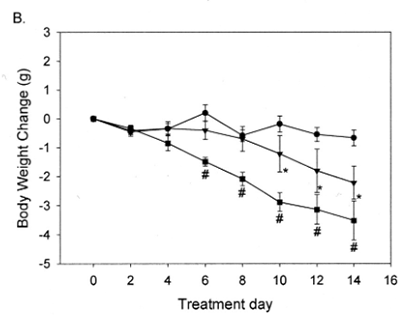Fragment 176-191 (modified version of AOD9604) is a small piece of human growth hormone (hGH) that is sometimes referred to as the “lipolytic fragment.” Fragment 176-191 earned this latter name due to the fact that laboratory research has shown it to enhance fat burning, particularly in mice genetically engineered to produce large fat stores. Fragment 176-191 has been heavily researched in animal models because even while it preserves the fat-burning effects of hGH, it avoids some other effects of its parent protein such as increasing insulin-like growth factor-1 (IGF-1) levels, negatively impacting carbohydrate metabolism, altering insulin sensitivity, increasing long bone growth, and so forth. The targeted effects of fragment 176-191 make it useful for exploring human fat metabolism and may eventually provide the basis for developing anti-obesity medications.

Research in animals has revealed that the c-terminal end of hGH is primarily responsible for the protein’s hypoglycemic (lowering blood sugar) effects. Testing of at least six different fragments derived from this section of hGH has shown that fragment 176-191 is the most effective synthetic derivative of hGH for lowering blood sugar levels. This effect is secondary to a sustained increase in plasma insulin levels[1]. There is some interest in using fragment 176-191 as a treatment for both prediabetes and type 2 diabetes.
Fragment 176-191 has earned the nickname of “lipolytic fragment” because testing in mice has revealed the peptide to have substantial fat burning and weight loss properties. It is thought that this action is mediated through an increase in production of beta-3 adrenergic receptors (β3-AR or ADRB3)[2]. Agonist action at ADRB3 is known to directly increase fat burning in adipose tissue and is also responsible for thermogenesis in skeletal muscle[3]. Mice that have been genetically modified to produce no ADRB3 do not respond to the lipolytic effects of hGH or fragment 176-191[2].
Studies show that the increased fat burning associated with fragment 176-191 directly correlates with energy expenditure and thus weight reduction, leading to a nearly 50% reduction in weight gain in obese animals over a three-week course[4]. Interestingly, the weight loss effects were seen only in obese mice, with lean mice maintaining normal body weight, on average, even when exposed to fragment 176-191[2]. These findings indicate that there are secondary regulatory pathways for lipolysis that override ADRB3 function when body weight is at or near ideal, opening up areas for additional research into energy homeostasis.

There is some concern that the use of hGH or its derivatives for weight control may have unwanted side effects. This concern arises from the fact that studies of hGH have shown that long-term exogenous administration, while increasing lean body mass and decreasing adipose tissue, can also cause:
In 2013, a study published in the Journal of Endocrinology and Metabolism evaluated six studies of fragment 176-191 to assess the rate and significance of negative effects associated with the peptide. The study, included only research that followed the randomized, double-blinded, placebo-controlled model of a phase IIb clinical trial in order to keep the highest possible standards of evidence. It found that IV and oral administration of Fragment 176-191, when compared to placebo, led to no changes in: